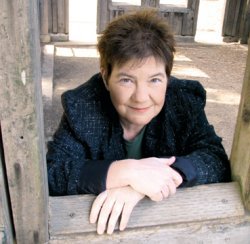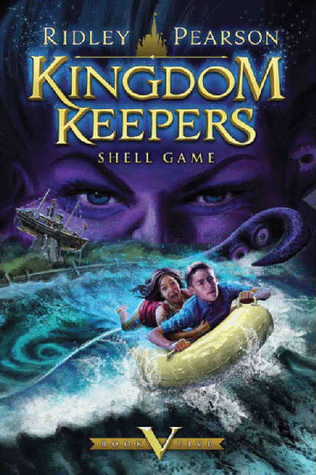
In Ellen Klages’ dazzling new collection of short stories, Wicked Wonders, she crafts one perfect sentence after another.
Published by Tachyon, a small press in San Francisco, this extraordinary collection is introduced by PEN/Faulkner Award winner Karen Joy Fowler. Klages has a reputation for eclecticism: she won the Nebula Award in 2005 for her novelette “Basement Magic” and the Scott O’Dell Award for Historical Fiction in 2007 for her Y.A. novel, The Green Glass Sea.
Klages’ perceptive stories cross genre. Are they miniature fantasies? Magic realism? Retold fairy tales? A little bit of all three, plus some smart homages to Ray Bradbury.
Klages is an evocative chronicler of childhood. In “Amicae Aeternum,” Corry gets up early one lovely morning to take a walk through her hometown. She has a list of things she wants to see: she appreciates every detail, from flowers to fire hydrants.
Klages writes,
A dandelion’s spiky leaves pushed through a crack in the cement. Corry squatted, touching it with a finger, tracing the jagged outline, memorizing its contours. A weed. No one planted it or planned it. She smiled and stood up, her hand against a wooden fence, feeling the grain beneath her palm, the crackling web of old paint, and continued on. The alley stretched ahead for several blocks, the pavement a narrowing pale V.
It is gradually revealed that Corry’s future life, unlike a dandelion, will be planned. But for now, Corry goes bicycling with her best friend, Anna.
No traffic, no cars. It felt like their last day on earth.

Ellen Klages
And then we learn that it is Corry’s last day on Earth. She and her parents are leaving on a “generation” spaceship headed for a distant planet. She will spend the rest of her life on the ship, and her great-great-great–she doesn’t know how many “greats”–grandchildren will live there. She will never see the planet.
The melancholy narrative is reminiscent of Ray Bradbury’s depictions of t of Midwestern small towns in Dandelion Wine and The Martian Chronicles, where astronauts on Mars never stop missing their hometowns. Is the journey worth it? As in Bradbury’s stories, small town characters are split between Earth and space. But the girls make a pact that may sustain Corry.
Klages’ other stories of childhood are equally fascinating. In “The Education of a Witch,” Lizzie, a small girl, sympathizes with Maleficent in the movie Sleeping Beauty She finds Maleficent beautiful, unlike the warty witches in storybooks, and thinks the king and queen were wrong not to invite her to the christening. Later, at a toy store, she persuades her mother to buy her a Maleficent puppet. And after her mother has a baby, Lizzy spends more time with Maleficent, who tells her stories. When Lizzy tells her nursery school teacher she wants to be a witch, we wonder if she already has the power.
Klages is also fond of portal fantasies. In “Friday Night at St. Cecilia’s,” the heroine Rachel plays a game of backgammon with the school’s cleaning lady and is transported through a portal to living board games, where she must win Clue, Snakes & Ladder, and Monopoly for the lives of her best friend and herself.
Klages’ stories also explore identity. In “Woodsmoke,” the heroine Peet, whose real name is Patty, is excited about spending the summer at camp while her parents go to Europe. She loves camp, where girls get to do everything boys do. Another strong girl, Margaret, whose parents live in Asia, is also there for the summer. The two girls become close friends, because other campers leave after one- and -two-week session. But there’s an identity twist at the end.story.
In my favorite story, “Echoes of Aurora,” a single retired woman, Jo, returns after her father’s death to the resort town where she grew up. Her father owned a penny arcade, which decades ago was successful, and she repaired the machines. She plans now to fix some up and sell them to a circus museum.
Again, it is Klages’ prose that makes the story so special.
Cedar River was a summer town.
You’ve seen it, or one just like it. Off a state highway, on the edge of a lake—a thousand souls, more or less, until Memorial Day. Then the tourists come, for swimming and fudge and miniature golf. They laugh, their sunburns redden and peel, and when the first cool autumn breezes ripple the water, they leave. The carnival is over.
I have seen it!
One day, while Jo listens to the nickelodeon in the arcade, a beautiful young woman, Aurora, shows up dancing. The two become lovers, and Jo stays longer than she had planned. In the fall, we learn Aurora’s real identity. It is so fitting–why didn’t we realize it all along? But you won’t guess it.
I loved these stories. I am so glad to have discovered this writer.
Share this:




